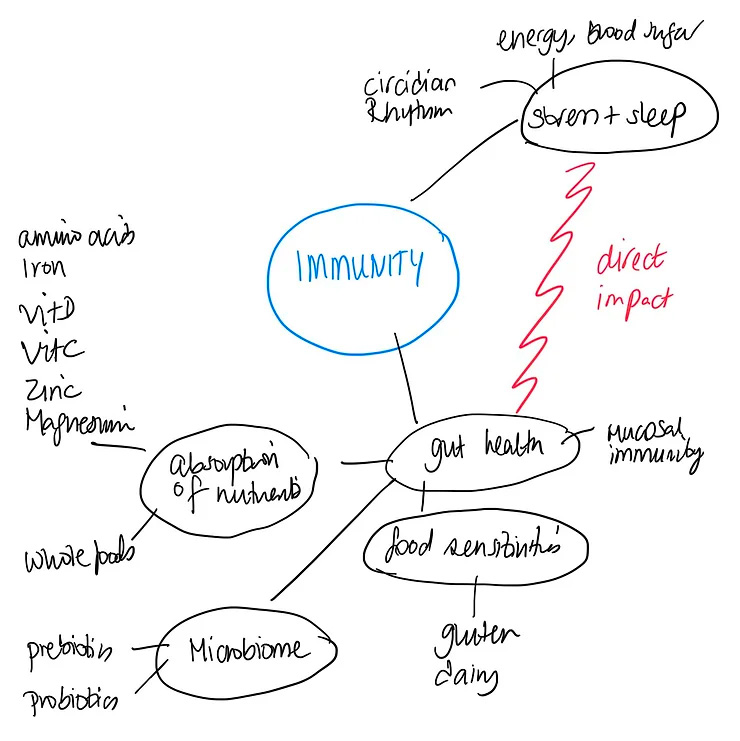Boosting Your Immunity to Fight COVID-19

COVID-19 is not a short term visitor. It looks like the virus will be here for some time, and we need immunity strategies to protect us and our loved ones for the long haul. We can’t stress enough the importance of the foundational hygiene and social distancing advice you have been given – which we believe need to become habits that stick.
What else can we do?
Now is a good time to delve deeper into what’s going on in your body. At The Nutrition Clinic, what we do best is identify and fix underlying imbalances that may be affecting your immunity. For some, that is about addressing sleep while for others, immunity can be improved by avoiding food sensitivities. Our approach is always driven by personalised information about each client so that we can address root causes and achieve optimal wellness. Our methodology gives us comprehensive understanding of your genetic, biochemical and lifestyle factors for a structured plan to meet your goals.

Factors that affect immunity
Nutrients
Our immune system relies on nutrient dense whole foods to function well. This is a good time to examine your diet. We ask our clients to plan their meals with a foundation of plants – 2-3 cups of veg + fruit as the foundation of each meal. Add to that protein which is so important for immune function. We recommend healthy fats such as nuts, seeds and olive oil and we encourage the use of herbs and spices, such as turmeric and oregano, not just for flavour but also because many of them have a role to play in immune system boosting. What we want off the plate are sugary foods which can depress the immune system for hours after being ingested. In Nov 2019, a small animal study done at Yale School of Medicine found that the keto diet amped up the body’s immune response to the flu virus. While we aren’t recommending the keto diet specifically for immunity, the message we take from this is that it is time to ditch sugar.
Specific nutrients to be aware of while on the topic of immunity are Vitamins C and D, zinc and selenium. Studies have shown that those with Vitamin D deficiency are 11 times more likely to get an infection. And zinc which can be a deficiency for some people is a mineral that is involved in virtually every aspect of immunity. Through assessments at TNC we can help identify which nutrients you specifically may need to top up.
Stress + Sleep
Getting enough sleep and following the circadian rhythm of sleeping before 11pm is important for your body to work at its optimal state. Our experience with the clients shows that this is can be the area that truly starts shifting the needle towards better health. One of our clients had come to us because she fell sick every month. We ran a number of assessments and found that stress and sleep were an important area she had to work on. She was stuck in a wired and tired cycle – not sleeping enough, fighting fatigue all day, leading to a high caffeine, high sugar diet. By digging deeper, we found that she had difficulty falling asleep because her mind was active with worries and to-do lists at night, and sleep quality was affected by low levels of magnesium in her diet. We used a combination of strategies — diet shifts meant that her energy improved so that she could reduce caffeine and sugar; simple breathing exercises done for 5 minutes every night helped her calm her mind and a supplement mix of adaptogenic herbs (these help you cope better with stress) along with minerals helped her sleep deeply.
Gut Health
Seventy-five percent of your immune system is in your gut. The gut microbiome – which is a community of microbes that live in the gut — play a critical role in regulating our immune responses. Every client we work with gets a gut health assessment as we believe it is at the core of our health. Specifically, we look at food sensitivities, which can affect gut health and the levels of pre- and pro-biotics in the diet as a start.